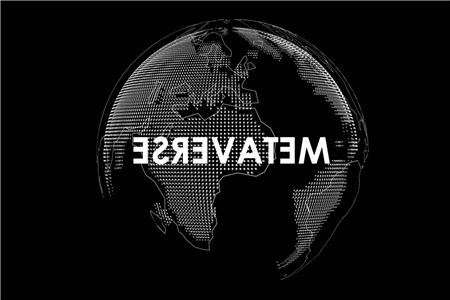Opinions expressed are solely those of the author and do not reflect the views of Rolling Stone editors or publishers.
We have been through — and are still in — the ringer. With the continued Covid-19 pandemic and its variants circulating, we are yearning for a break in the action. We are contending with all manners of equity concerns from financial to societal, to the biggest of them: environmental equity. We are striving to use emotional intelligence and be more knowledgeable about all manner of concerns. We’re dealing with burnout and the anxiety brought on almost daily from glancing at the headlines. It’s exhausting, to say the least.
Where can we get a break and create a safe space of our choosing? Welcome to the metaverse.
2021 ushered in an NFT rush, with an equal emphasis on the digital landscape. Why? I’d argue that these innovations were partially brought on by our societal desire for escape. If you invest in your metaverse gear (e.g., land, luxuries, etc.), you can become a world creator unto yourself. Have we truly thought of the possibilities and opportunities this brings?
Related Stories
Why 2022 Will Be a Defining Year for Female Leadership in Cannabis
Kevin McCarthy Is Now Pushing Conspiracy Theories About His Jan. 6 Committee Request
Related Stories

The Private Lives of Liza Minnelli (The Rainbow Ends Here)
'Silence of the Lambs': The Complete Buffalo Bill Story
The metaverse is still very much in its infancy, meaning rules and regulations haven’t been formed yet. The whole thing is new and the implications are huge. I studied a course at The University of Edinburgh on data ethics, AI and responsible innovation, in which a major part of the discussion was how we program AI and other data and decision tech to abide by all laws and regulations and fair as societal needs have dictated.
It is one thing to have a Sims-style world on your desktop or other apparatus, but it’s entirely another thing when worlds collide in the metaverse. Who wins? What are the rules? Are there any rules? Technology always is in front of government regulation, so I expect it will be the Wild West for some time to come.
But the larger question is: Will people become addicted to their own metaverse world and lose all consideration for the real world? I think it could happen. If you can plug in and be whatever you want and conduct yourself however you wish, chaos will rear its ugly head.
When the metaverse finally takes shape — and the proper protocols of interoperability are in place — whose worlds will interact? Let’s first break down the following:
The Rolling Stone Culture Council is an invitation-only community for Influencers, Innovators and Creatives. Do I qualify?
What Is the Metaverse?
In short, the metaverse is a virtual world that exists in a computerized environment where people can interact with one another through avatars. But from my point of view, the metaverse encompasses a lot more than we might realize. Based on my experience, here’s what the metaverse can be:
• A digital platform that allows users to build and share 3D environments.
• An open-source project with an associated community of developers, designers, artists, architects, engineers and scientists.
• A network of servers that store user-generated content.
• A set of tools that enable users to navigate, manipulate and communicate within these spaces.
• A shared online experience where users can explore, play, socialize, work, collaborate and learn together.
• A place where anyone can go to imagine, design and build anything they can dream up.
• A global community of creators who can produce, publish, sell, trade, distribute, monetize and otherwise control their creations.
• A place where users can connect, meet, form communities and engage in commerce.
The metaverse is a concept that has been around for many decades: the idea of creating an environment where people can interact with virtual objects and characters in ways they could never do before. In other words, it’s a way to create digital worlds that are more immersive than anything we have today.
As explained in a recent Forbes article by Kian Bakhtiari, “a shared virtual space where people can create new identities, explore endless possibilities and spend time with friends. Within the next decade, virtual spaces will become an integral part of our collective human experience. “
In the past year or so, there’s been a lot of talk about the metaverse, but very little progress toward actually building one. Although Facebook’s Meta rebrand does signal that the metaverse will come to fruition. The question for brand leaders is whether or not they can make the transition to the metaverse. Can your brand live in a place where everyone interacts in a fully digital and immersive world? How will your brand fit? Leaders need to figure this one out soon given the rapid rise in popularity.
One tip I might offer brand leaders: It could be worth your time now to see how your unique brand can thrive in the metaverse. See what of your intellectual property or physical property could be replicated in the metaverse and take the time now to protect and make it available to be monetized by your brand. Look to Nike and the recent protection of their intellectual property. It really is a brave new world — get a map.
Source: Read Full Article
